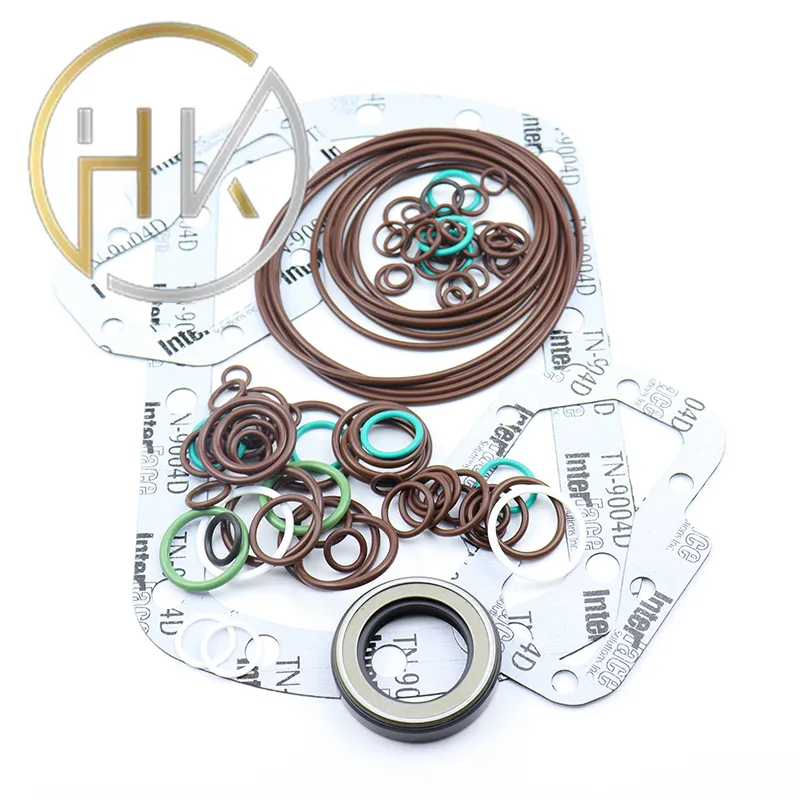Nov . 12, 2024 01:12 Back to list
metal oil seal
Understanding Metal Oil Seals A Comprehensive Overview
Metal oil seals are crucial components in various mechanical systems, designed to prevent the leakage of lubricants and protect vital parts from contamination. They are employed across a wide range of industries, from automotive to aerospace, and their significance cannot be overstated. This article aims to provide an in-depth understanding of metal oil seals, their construction, applications, benefits, and maintenance.
Construction and Design
Metal oil seals, often referred to as metal lip seals, typically consist of a robust metal casing that houses a flexible sealing lip. The most commonly used metals for the casing include stainless steel, aluminum, and sometimes even brass, providing excellent durability and resistance to environmental factors. The sealing lip is usually made from a synthetic elastomer, which allows it to conform tightly to the rotating shaft it encircles, thereby preventing fluid leakage.
The design of metal oil seals can vary significantly, with options including single-lip, double-lip, and even triple-lip configurations. The choice of design often depends on the specific application and the level of protection required against contaminants.
Applications
Metal oil seals are used in various applications across multiple industries
1. Automotive Industry In vehicles, these seals are commonly found in engines, transmissions, and wheel hubs, where they prevent oil and grease from leaking out while also keeping dirt and moisture from entering.
2. Aerospace In aircraft systems, metal oil seals are critical for maintaining the integrity of hydraulic systems and preventing fluid loss under high-pressure conditions.
3. Industrial Equipment Machinery used in manufacturing often employs metal oil seals to protect bearings and other components from dust and debris, thereby extending their lifespan.
4. Marine Applications Boats and ships utilize these seals to protect engines and critical systems from saltwater intrusion and other challenging environmental conditions.
metal oil seal

Benefits
Metal oil seals offer several advantages over traditional rubber seals
- Enhanced Durability The metal casing gives these seals a higher resistance to wear and tear, making them ideal for high-speed and high-temperature applications.
- Chemical Resistance Metal oil seals can withstand exposure to a variety of fluids and chemicals, ensuring better performance in harsh environments.
- Longer Lifespan Their robust construction typically leads to a longer operational life, reducing the need for frequent replacements and, ultimately, maintenance costs.
- Effective Containment The ability of metal oil seals to create a tight seal helps maintain the integrity of lubricants, which is vital for the efficient operation of machinery.
Maintenance and Care
While metal oil seals are designed for durability, regular maintenance is essential to ensure their continued effectiveness. It’s important to conduct periodic inspections for signs of wear, such as cracks or deformation in the metal casing or the sealing lip. Proper installation is another critical factor; improper fitting can lead to premature failure.
Regular lubrication of the shaft can also improve the performance of the seal by reducing friction between the seal and the shaft. In addition, ensuring that the surrounding area is clean and free from debris can help maintain the effectiveness of the seal.
Conclusion
In summary, metal oil seals play a vital role in protecting mechanical systems from leaks and contamination. Their robust construction, versatile applications, and numerous benefits make them an invaluable component in many industries. By understanding their design, advantages, and maintenance, engineers and technicians can make informed decisions to enhance the performance and longevity of their equipment. As technology advances, we can also expect developments in the materials and designs of metal oil seals, further improving their efficiency and reliability in various applications.
-
TCN Oil Seal Metal Ring Reinforcement for Heavy Machinery
NewsJul.25,2025
-
Rotary Lip Seal Spring-Loaded Design for High-Speed Applications
NewsJul.25,2025
-
Hydraulic Cylinder Seals Polyurethane Material for High-Impact Jobs
NewsJul.25,2025
-
High Pressure Oil Seal Polyurethane Coating Wear Resistance
NewsJul.25,2025
-
Dust Proof Seal Double Lip Design for Construction Equipment
NewsJul.25,2025
-
Hub Seal Polyurethane Wear Resistance in Agricultural Vehicles
NewsJul.25,2025
-
The Trans-formative Journey of Wheel Hub Oil Seals
NewsJun.06,2025
Products categories
















